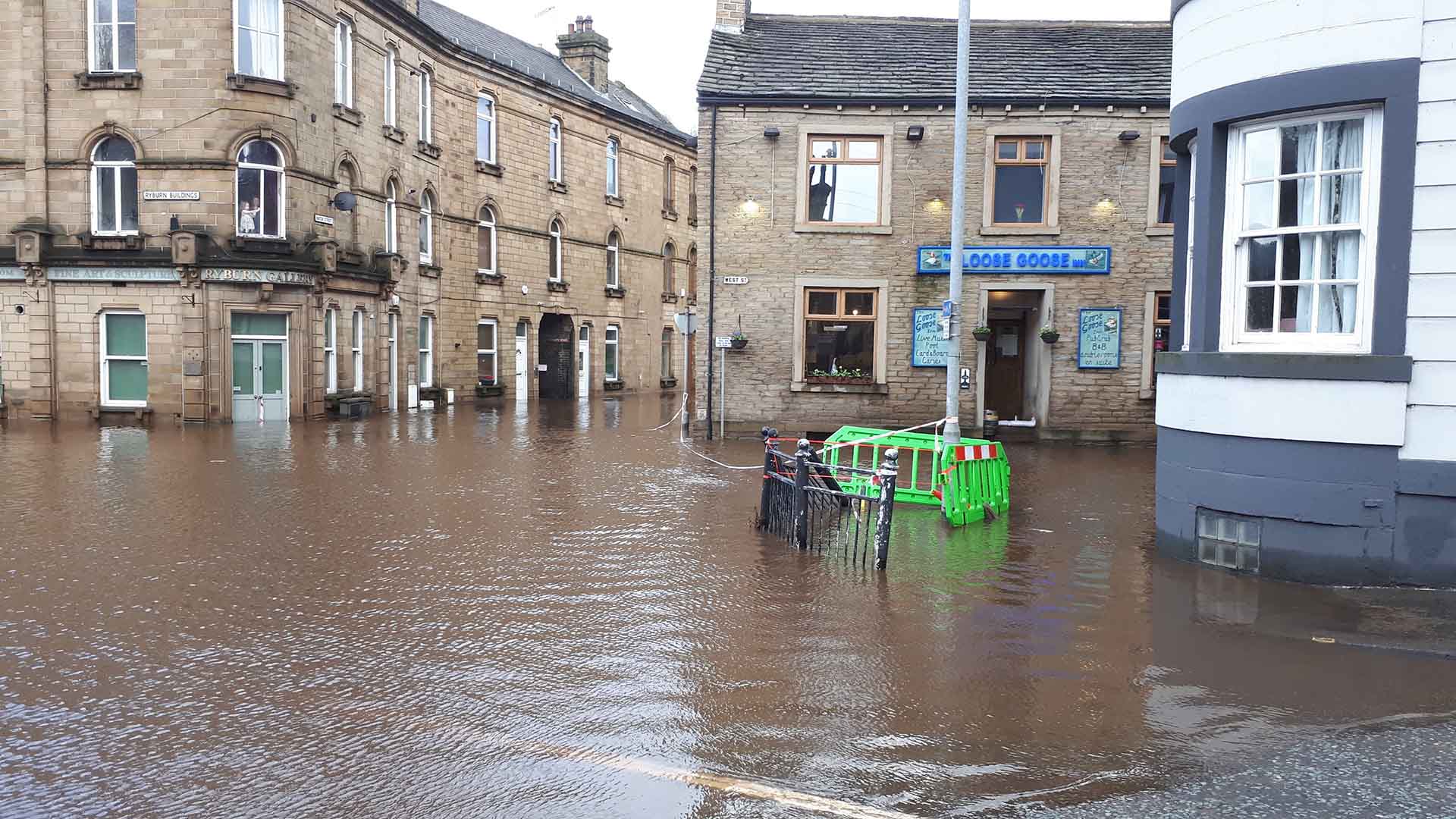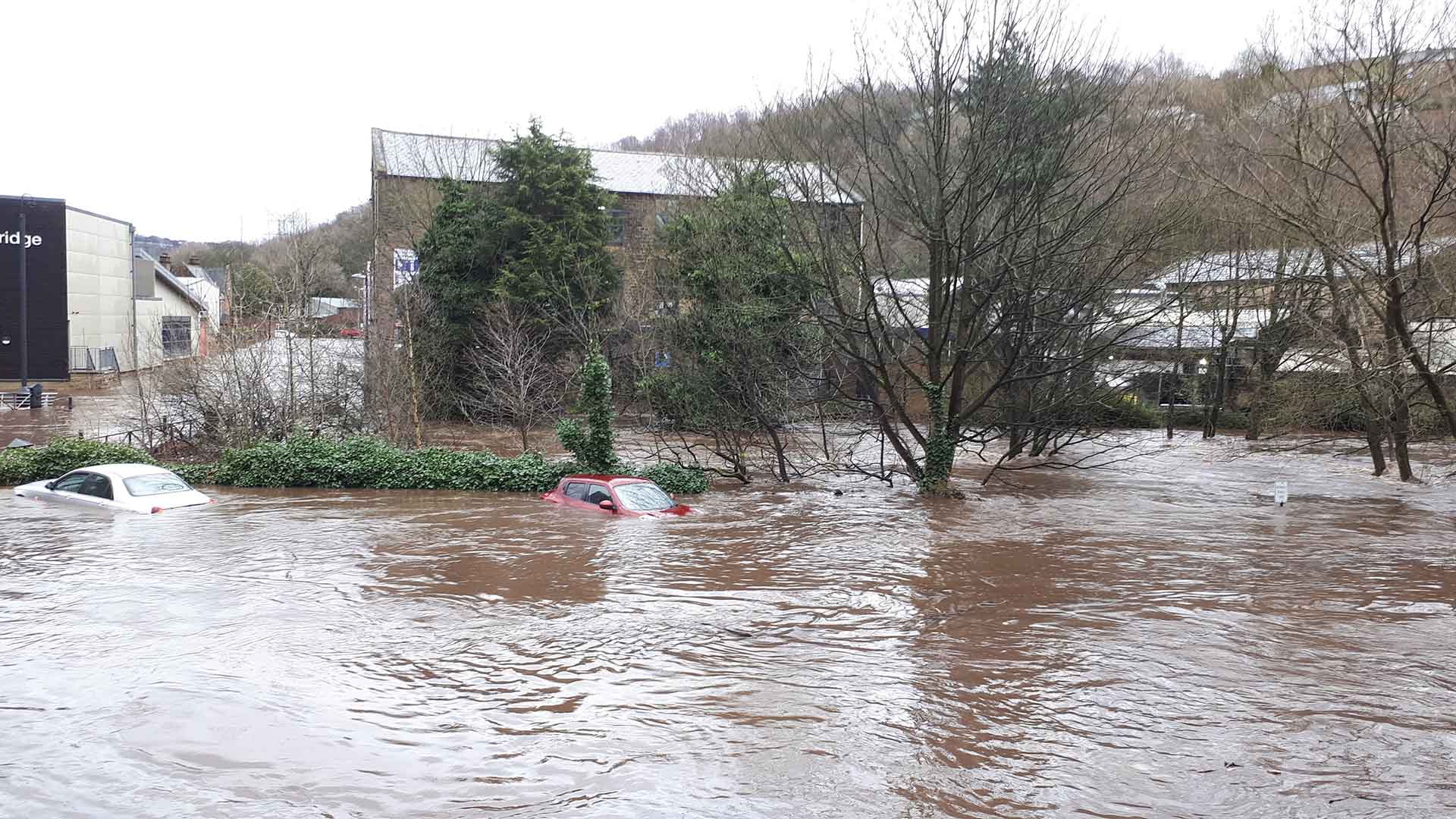Research examines mental health impact of those affected by flooding

Hundreds of people across West Yorkshire who live in communities at risk of flooding are being urged to take part in new research to help reduce the impact on the mental health of flood victims and provide them with the vital support they need.
A large-scale online survey is being carried out by researchers at the Healthy Housing Initiative, University of Huddersfield, as part of a West Yorkshire Flood Innovation Programme (WYFLIP) project, led by Kirklees Council and supported by the Environment Agency. This needs assessment will be used to gather evidence which will be used to inform delivery of mental health services by Kirklees Council for people affected by flooding.
Need for more understanding of flooding's impact
International studies show that climate-related disasters such as flooding have a significant impact on the mental health of households with communities suffering from psychological distress, anxiety and longer-term trauma. As a result of climate change such disasters are becoming more frequent and severe. However, there remains a lack of understanding of these impacts at the local level across West Yorkshire.
The aim of this survey or Mental Health Needs Assessment (MHNA), is to provide evidence needed to develop new innovative and effective approaches to mitigate these risks and improve flood resilience for communities.
A major challenge facing Kirklees Council and other local authorities is making sure communities have access to mental health and resilience support following disasters, such as flooding and raising awareness of the risks so that households can be as prepared as possible.
Around 500 online questionnaires will start to be distributed this month (September) amongst communities at risk of flooding through flood groups, flood managers and community workers. They will also be promoted through publications and social media, and can be accessed here.

The second stage of the project will be to carry out around 50 in-depth interviews with households who have been flooded or are at risk of flooding. There will also be five workshops for community groups to help come up with new solutions and design useful resources, such as a toolkit that would help people prepare for flood events.
Findings to inform policy
Findings from the research will be used to develop a policy briefing with recommendations for policy makers, local authorities and housing organisations, both locally and regionally, and to provide evidence to successfully bid for funds to develop initiatives or resources to improve wellbeing and preparedness amongst communities.
The Mental Health Needs Assessment (MHNA), funded by Kirklees Council, is connected to broader research through a Creating Opportunities through Local Innovation Fellowship (COLIF). This Fellowship research will go beyond flooding covering broader climate-related weather disasters, including wildfires and is funded by UK Research and Innovation (UKRI) through the ESRC COLIF Scheme, with additional support from the ESRC Impact Acceleration Account (IAA) at the University of Huddersfield.
Dr Tom Simcock, COLIF Fellow and Research Fellow, said: "As climate-related disasters like flooding and wildfires become more frequent, this COLIF Kirklees Climate Resilience and Mental Health Fellowship is an important opportunity to work together to address their impacts on mental wellbeing. This fellowship provides an exciting opportunity to collaborate with colleagues, communities, and local partners to co-develop strategies that will build resilience and support those most affected.”
The first stage of the project was to provide Psychological First Aid Training for around 100 local authority employees to help improve the mental well-being of people whose properties have flooded or at are risk of flooding. It was delivered by specialist trainers Purple Dog to a diverse range of front-line staff including community first officers, flood risk managers, management teams, emergency planning officers, CCTV operators and gully wagon drivers. Psychological first aid is a technique designed to reduce the occurrence of post-traumatic stress disorder.
Cllr Amanda Pinnock, Kirklees Council’s Cabinet Member for Communities and Environment said: “There are steps we can take to reduce the chance of flooding here in Kirklees, but it is likely to be an ongoing challenge for some of our communities, as we see ongoing shifts in climate change.
“This project will help prepare communities for unpredicted flooding and will help them to recover with compassionate and understanding support.”
Dr Dillon Newton, Research Fellow leading the mental-health needs assessment work at the University of Huddersfield, said: “This assessment will provide the evidence we need to understand and address the mental health impacts of flooding and ensure support services are truly responsive to at-risk communities."
Cllr Katie Kimber, Spokesperson for WYFLIP and Luddendenfoot councillor, Calderdale Council, said: “I have first hand experience of how devastating flooding can be for residents. The aim of this project is to help people become more resilient and recover more quickly from floods by improving their mental wellbeing.
“The plan is to share what we learn from this project to benefit others further afield by developing good support and helping them to become more prepared for unpredictable flooding.”
Professor Joseph Holden, Director of iCASP and water@leeds at the University of Leeds and WYFLIP Board member, said: “This is another fantastic project in West Yorkshire which we are pleased to support at the University of Leeds. This project will provide a blueprint for future research collaboration and knowledge sharing across the region on flooding and mental health. An important outcome will be a new academic-policy network to support advancement of solutions to mental health and climate-related hazards.”
The whole project, developed as part of a West Yorkshire Flood Innovation Programme (WYFLIP) project, received £56,000 funding from the Yorkshire Regional Flood and Coastal Committee and Kirklees Council.